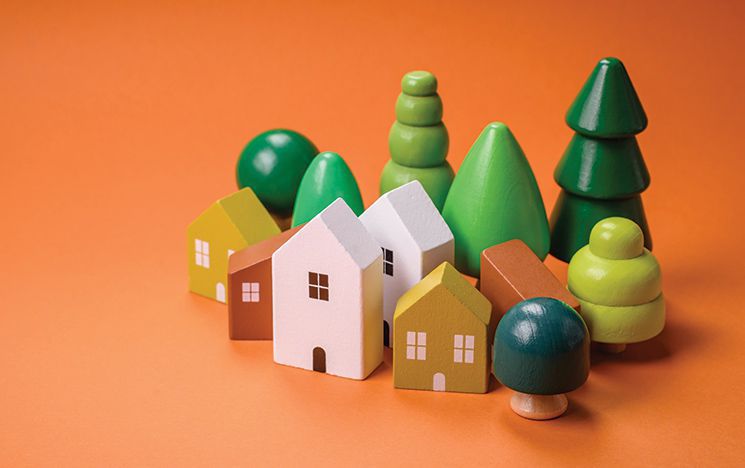Using cultural repertoires as a toolkit
How do you approach life changes like starting a new job, moving into a new neighbourhood, or getting through a breakup? How can you adapt?
Dr Nicole Ye Yang investigates how people use their own styles, habits, scripts and strategies to navigate life using their "cultural toolkit". She examines the travel experience of home swapping, and identifies four patterns that lead to distinctive approaches for the management of uncertainties and new experiences.

Routines and habits: how we use our culture
Almost without thinking you understand and solve daily problems using your familiar “cultural toolkit” (Swidler, 1986). Culture is more than the traditions, heritage, and social norms we know and talk about. It can also be seen as a flexible tool or narrative that individuals acquire and use throughout their lives.
Culture provides both means and ends, to help people make sense of, and approach, challenges. For example, keeping your home clean and tidy is a routine part of most people’s lives. However, this practice can be threatened by changing circumstances such as moving house or into student accommodation for the first time, or sharing space with flatmates. In these unsettled times, some people might adapt to a more flexible standard of cleanliness (ends), while others might adopt new strategies like hiring a cleaner (means) to maintain the same level of cleanliness.
Reacting and adapting to challenges and uncertainties
Modern life is increasingly uncertain. We face significant challenges like pandemics, global warming and economic turbulence, alongside daily challenges like new technologies and models of remote work. We can also view life events such as becoming parents, or getting married, as uncertain times where our previous strategies towards life may no longer work. Regardless how big or small a challenge is, people are more likely to draw on their familiar cultural tools in response, whether it’s finding a way through homeschooling during a pandemic, or changing your bathing habits to save water during a drought.
What home swapping reveals about our approaches to uncertainty
Home swapping presents travellers with heightened uncertainties and challenges compared to other types of holidays. People stay in a stranger’s house, in an unfamiliar neighbourhood, often in a foreign country. There are fewer organisational resources such as hotel staff or travel operators to rely on, and there are increased chances of last-minute cancellations. More often than not, you have to solve any problems that arise by yourself.
I interviewed home swappers about their experiences to find out how their approaches to uncertain situations compared. Their experiences reveal the different ways we navigate life challenges, and more importantly how we can keep ourselves open to new experiences and growth.
The formulaic: minimising risks and maximising familiarity
“I’m living a life similar to how I would live at home” Giselle, France.
Many people immediately associate uncertainties with risks and discomfort. When you start your first year of university or your first job, meeting someone from the same region is likely to provide you some comfort and security. Similarly, you may find yourself wandering into the same coffee chains rather than trying out new places. There is no doubt that keeping to routines can help with transitions. But, the more we are attached to familiarity and comfort, the less open we might be to new experiences.
The adventurer: turning unsettled situations into transformative experiences
“Things happen. So, I wasn’t happy about it, but what can I do? You just make the best of it and enjoy your time” Bonnie, USA.
Do you embrace problems as opportunities for change and growth? This group is the most daring with novel experiences, while remaining pragmatic and adaptable. The adventurer approach means you do not differentiate between familiar and uncertain situations as good or bad. Instead, you embrace challenges because you see them as enablers of personal transformation and growth.
The freewheeler: being playful and imaginative
You’re open to surprises, playfully embracing the adventure. Uncertain times are enjoyed and reframed as a “great escape” Susan, USA.
You may not be the most skilful in dealing with uncertainties, but you are always open to any surprises and unexpected experiences. The freewheeler is curious and romantic in imagining and experimenting different ways to lead their lives.
The troubleshooter: problems to be spotted and solved
“We find some way around whatever looks like a problem” Bea, England.
Things like travel can be hard work, but it’s worth it. You can tolerate unsettling experiences by adjusting your expectations. But, does being overly pragmatic mean that you lose the fun of the experience?
We all use a combination of our cultural repertoires, and we may vary our approach to fit the situation. Are we able to use our toolkit a little more knowingly? Can we increase awareness of our own responses and repertoires to shape a more meaningful life experience from our challenges? Or how can this make us collaborate better and have better shared experiences? There is no right or wrong approach to using our cultural repertoires, whether you are formulaic, freewheeling, versatile or troubleshooting. What is important is to be aware of what makes you more at ease, as not everyone loves surprise and wants to be transformed. However, it does not hurt to know that there are alternative ways to frame and approach uncertainties and new challenges.
How do you respond to unsettled times or change?
- My comfort and safety is paramount. You focus on familiarity and comfort: you’re formulaic.
- Life is an adventure. You’re all about flexibility and openness: you’re versatile.
- Enjoy the simple pleasures. You can play and make new experiences fun: you’re a freewheeler.
- Life is a series of problems to deal with. You focus on preventing problems and risks: you’re a troubleshooter.
Photo credit: Tetiana Chernykova.